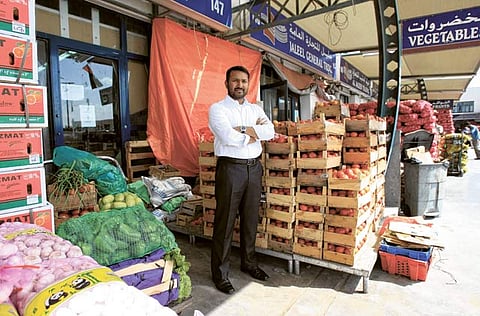Tapping technology for growth
Mohammad changed mindset of staff once he took over reins of the company

Dubai: When Sameer K. Mohammad took over the reins, it was not a case of him trying to get the family-owned business to adapt to technology in a big way. It was more an effort to get the business and its employees not to treat technology as a scourge.
"It did feel as if the business was stuck in the Industrial Age and had no inclination for change," said Mohammad, managing director of Jaleel Holdings, whose flagship division is one of the leading lights in food and consumables trading and distribution in the UAE. "We still had sales managers busying themselves with loading and unloading operations a lot of the time, and even up to the late 1990s manual bills were the norm for us.
"Excel sheets were unheard of. To me, that was just not right… not any longer."
It was recently decided that the business had to go in for an expensive — and time consuming — SAP implementation. Rather than do anything drastic with the existing workforce, as many businesses prefer in such situations, Mohammad went about trying to co-opt the employees into bridging the technology gap.
"Many of them joined at the time my father, Kunhu Mohammad, launched the business in 1972 and had contributed so much to the growth," he added. "I set the target of making them commit fully to what the business was trying to achieve rather than see them go.
Qualitative impact
"It did take longer, but no change can be implemented in full unless the people are ready for it."
Full implementation of the SAP programme was completed in late 2009, and had an immediate and qualitative impact on the way Jaleel Holdings operates. Just as important, "even 55-year-old senior managers who were very reluctant to change their ways found that the shift to full automation - and the journey was completed with the SAP implementation - was actually helping them," said Mohammad.
"Though it came late for us, the business and its people moved up several levels in the technology space."
But tech was one aspect of the transition Mohammad wanted to bring about under his stewardship of the company. The food and consumables business has always been a low-margin, high-volume game. But the way it's played is in constant flux and Mohammad wanted Jaleel Holdings — which operates out of a sprawling base in Dubai's Fruit and Vegetables Market — to get a better handle on that.
"Somewhere along the way the focus was lost on the small and mid-sized grocer, which represents our largest clientele," said Mohammad.
"With the economy feeling the full impact of the recent downturn, these businesses suffered a disproportionate share by way of lost income, etc."
As part of the programme launched four months ago, these grocers were encouraged to take on 12 days of stocks rather than the norm of 25 to 26 days. "Smaller quantities and greater variety of products is what we offered and that was exactly what clients wanted at the time."
This move also tied in with Jaleel Holdings' earlier introduction of the "cash and carry" concept attuned to the needs of the local marketplace.
While the concept had been around in Europe for some time, it never got much of a look-in among local wholesale distributors. That too had to change, according to Mohammad.
Managing cashhflow
"What cash and carry offers our grocer clients is flexibility," he said. "They are no longer bound to take on a certain volume of stocks; rather they come to our cash and carry hubs and buy only what they feel is required.
"This has helped our clients manage their cashflow in a much better way, while for us it means holding on to our customers during the ups and downs of an economic cycle."
So far, Jaleel Holdings operates eight cash and carry centres. More could be added, and on a regional footprint, on a need-to basis. Wholesale currently represents more than 50 per cent of the group's turnover.
Mohammad emphasised that it was not a carbon copy of the concept that's there in Europe.
"For one, we offer free delivery, and that's certainly not done in Europe," he added. "Also, there's no requirement that clients have to pick up everything that's put up at our hubs. "As a concept, we are still in the process of fine-tuning it and it may take a further year or two before it reaches a stage we are wholly comfortable with it. But Jaleel Holdings is better off making all the changes now rather than later.
"My belief — and one I hold firmly — is that if the business model is sound, the economic environment would not hit it directly. It's more important for a family-owned enterprise as transitions are usually fraught affairs."
Focus on flexibility
- Be flexible in your business strategies. Never stick to the belief that what has worked before will work again and again.
- Technology can never replace the human element. They have to be in sync for a business to be sustainable.
- Look around for new concepts that can be introduced into the business.
- And don't be daunted by any task that you set out to achieve.
Sign up for the Daily Briefing
Get the latest news and updates straight to your inbox



